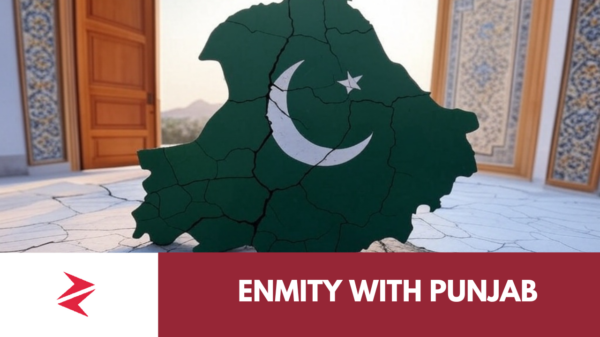The departure of the US from Afghanistan has resulted in the emergence of an illegal currency market worth 1.8 to 2 billion USD, which is decreasing the availability of dollars in neighboring countries and causing its value to rise. This highlights the close relationship between security and economics.
Approximately $5 million is being smuggled into Afghanistan from Pakistan daily, and the Afghan central bank now has enough reserves to sustain its economy. Meanwhile, Pakistan is facing a rapidly escalating economic crisis. However, It is unclear who is counting the money at the border and providing the statistics. Without further information or a credible source, the authenticity of these claims cannot be verified. It is important to question the reliability of sources and gather information from multiple sources before making conclusions or spreading information.
The Afghan central bank is injecting $17 million into the market on a weekly basis. Additionally, smugglers are bringing in $5 million daily, and the UN is providing $40 million in humanitarian aid each week. This shows that Afghanistan is performing better than Pakistan.
According to Bloomberg, the exchange rate of $1 to 124.18 Afghanis from last year has now reached 89.96 Afghanis, making it the strongest reaction against the dollar globally. Meanwhile, the Pakistani rupee depreciated by 37% during this period, which is the largest drop against the dollar worldwide. It seems like we don’t need enemies with these economic developments.
If your foreign exchange operates like a black market, you will naturally look for someone who offers a better rate. It is common for currency exchange rates to be better in countries where the market operates illegally. However, the smuggling equation refers to the illegal transfer of currency across borders, which can impact the exchange rate and overall stability of the economy.
How it’s possible?
If we could purchase that 1 USD at 270 PKR in Afghanistan, but we can’t find 1 USD at 280 PKR in Pakistan cities. Then why it’s smuggled to Afghanistan?
It’s possible due to the difference in exchange rates between Afghanistan and Pakistan. If one can purchase 1 USD for 270 PKR in Afghanistan but can only find 1 USD for 280 PKR in Pakistan, there is an incentive for individuals to smuggle dollars from Pakistan to Afghanistan to take advantage of the better exchange rate. The smuggling of currency can result in a decrease in the supply of dollars in the originating country (Pakistan) and drive up its exchange rate, while increasing the supply of dollars in the destination country (Afghanistan) and lowering its exchange rate.
The channels for smuggling money to Afghanistan are not publicly disclosed, but it is often done through informal and illegal means, such as through unlicensed money exchangers, cross-border trade, and personal networks. The statement about the government being helpless in stopping the smuggling may indicate a lack of effective measures to combat the issue. The responsibility for addressing the problem of currency smuggling likely lies with a combination of government agencies, such as the central bank and law enforcement, as well as the public and businesses cooperating with efforts to stamp out the illegal activity. It is a complex issue that requires a coordinated response to address.
It’s the responsibility of the government to address the issue of currency smuggling as soon as possible. Implementing taxes on illegal activities may serve as a deterrent, but a comprehensive approach that addresses the root causes of the problem is likely to be more effective. Prioritizing the “Pakistan first” policy by tackling smuggling is important for the overall stability and development of the country. Blaming others for the problem is not productive and the government needs to take action to address the issue.
Securing porous borders and stopping illegal activities, such as hundi (informal cross-border trade), can be challenging. It requires a comprehensive approach that addresses the root causes of the problem, such as economic and security issues, and involves cooperation between various agencies and countries. Simply stopping hundi is not a viable solution, as it may lead to further tensions and even conflict with neighboring countries. It is important to find a balance between security concerns and economic needs and to work towards finding mutually beneficial solutions that promote stability and prosperity in the region.
The presence of smugglers operating in large areas, including Afghanistan and Central Asia, is a complex issue that affects not only these regions but also neighboring countries. Smuggling can have a significant impact on the local economy and security, as it undermines the legitimate trade and can facilitate the flow of illegal goods and money. Tackling this issue requires a coordinated effort among various countries and agencies, as well as addressing the root causes of smuggling, such as poverty, lack of economic opportunities, and weak governance. It is important to find sustainable solutions that not only disrupt the illegal trade but also promote stability, security, and prosperity in the region.
Why is IMF taking too long?
I recently reviewed the IMF reports on Croatia, Haiti, Malta, and Iraq. These countries are facing similar court issues to Pakistan, and the IMF did not provide any concessions to these smaller nations. Why did the government expect any leniency from the IMF?
The most concerning aspect of the IMF negotiations is the failure of our government team to leverage the damage from the flood as leverage to secure concessions. In view of the above, there is a need for a coordinated effort to address the root causes and find sustainable solutions for stability, security, and prosperity in the region.
